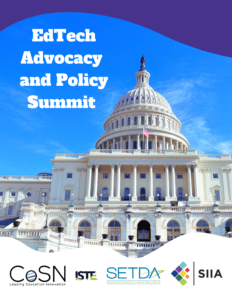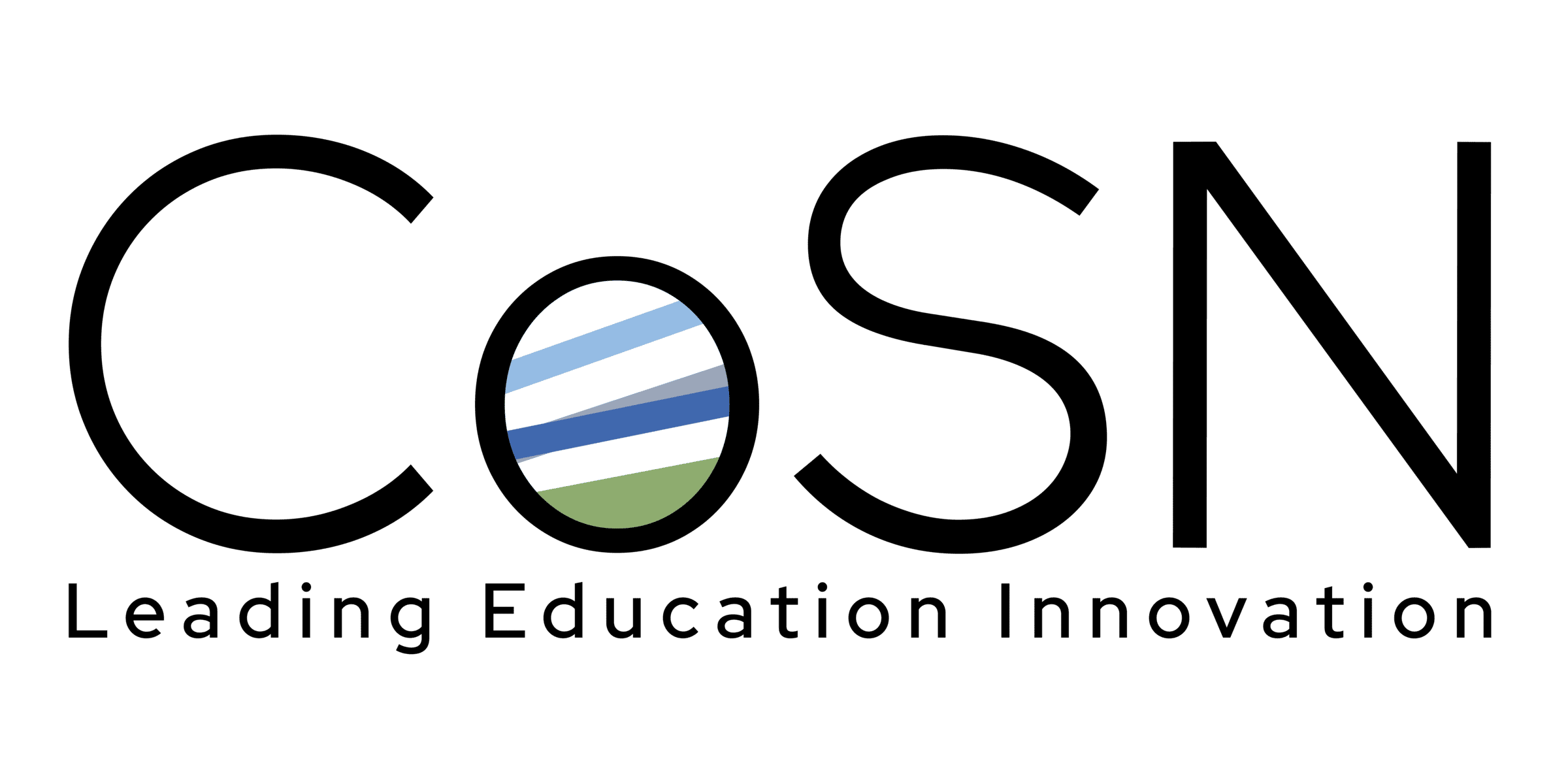On May 6, I had the honor of representing Learn21 and the EdTech Leaders Alliance (ETLA) at my very first EdTech Advocacy Day in Washington, D.C. As someone who’s spent over a decade in educational technology and recently stepped more deeply into the world of policy, including running for my local school board and becoming more civically engaged, this experience felt like a perfect merging of my passions. Organized by the Consortium of School Networking (CoSN), State Educational Technology Directors Association (SETDA), International Society for Technology in Education + Association for Supervision and Curriculum Development (ISTE+ASCD), and The Software & Information Industry Association (SIIA), the event brought together EdTech leaders from across the country to meet with lawmakers and speak up for the needs of our schools. I’m so thankful to these organizations for creating a space where our voices could be heard and for reminding us just how powerful those voices can be.

US Capitol image with logos of sponsoring organizations (CoSN, ISTE, SETDA, and SIIA)
Although I’ve been active in contacting local, state, and federal legislators in the past, nothing compares to walking the halls of Capitol Hill, sharing personal stories with policymakers, and witnessing the legislative process unfold in real time. It was both humbling and energizing to experience democracy so directly and to see just how much our voices can influence the future of education.
Our day began with remarks from Nick Moore, Deputy Assistant Secretary in the Office of Career, Technical, and Adult Education (OCTAE) followed by a policy briefing from leaders from CoSN, SETDA, and SIIA. The briefing prepared us to speak about a range of issues impacting education, including cybersecurity, E-Rate funding, artificial intelligence in education, Title II-A and IV-A funding, and student data privacy. During the morning session, we also had the opportunity to hear from Representative Jay Obernolte (CA) about his legislative work around AI in education. With clear talking points and one-pagers in hand, we were well equipped to focus our meetings on what matters most: the lived experiences of educators and students.
I had the opportunity to attend congressional meetings alongside Learn21’s Chief Academic Officer, Stacy Hawthorne. Together, we met with staff members from the offices of Ohio Representative Greg Landsman, and Senators Jon Husted and Bernie Moreno. I was encouraged by the engagement from each office where staff showed up interested in our stories and prepared for the conversations. Later that afternoon, we met with representatives from the offices of FCC Chairman Brendan Carr and Commissioner Anna Gomez to share how federal funding programs like E-Rate are making a difference in our districts.
While I’ve always understood the value of the E-Rate program in supporting school connectivity, it’s not something I’ve typically spent much of my day-to-day work focused on. That changed during our Hill visits. In 2024, the FCC approved the use of E-Rate funds to cover mobile hotspots, allowing schools to extend internet access beyond school walls. On the day of our meetings, the Senate held a procedural vote on whether to advance a Congressional Review Act (CRA) measure that would reverse this decision and remove mobile hotspots from the list of allowable E-Rate expenses. Sitting in a room full of EdTech advocates just a few blocks away from that vote, waiting for it to unfold in real time brought the urgency of this issue into sharp focus. It was a powerful reminder of how policy decisions are made and how important it is for educators to be engaged in shaping them. That moment became a turning point for me, prompting continued advocacy not only in Washington, but within my own professional and personal coalitions back home.
One of the key issues I addressed in my congressional meetings was artificial intelligence in education. The recent Executive Order requiring AI integration in K–12 experiences presents a real challenge for districts that lack access to high-quality, sustained professional development. Educators across the country are in very different places when it comes to AI; some hopeful, others hesitant. We know from previous technology shifts that students need more than access to tools; they need guided instruction, ethical frameworks, and thoughtful integration. That’s why we advocated for funding to support professional development and called for educators and AI experts, not just government officials, to have a seat at the table in shaping national policy.
Throughout the day, I was struck by how empowering advocacy can be. Being in those rooms, speaking on behalf of our schools, reminded me just how much educators have to contribute to policy conversations. Even more inspiring was the opportunity to learn from and connect with education technology leaders from across the country. Their passion, insight, and commitment to student-centered innovation made this experience one I will never forget. I made the difficult decision to leave the classroom over 13 years ago in order to pursue my passion for educational technology and ultimately use my expertise to support students, teachers, and school staff more broadly. As I sit here reflecting on this monumental experience, I am struck by the incredible way I have been able to do just that. This opportunity to use my expertise and experience to advocate at the national level for our schools and our students is one for which I am incredibly grateful.
The work of advocacy can feel daunting at times but this experience reminded me that it is not only doable, it is essential. When educators speak up, policy becomes personal. And when policy becomes personal, real change becomes possible.
Additional Resources:
CoSN Advocacy & Policy
Register at the CoSN | Action Center and stay up to date on our campaigns for 2025 and voice your support for keeping students connected!
More Than 70 Experts From 28 States Engage in 100+ Congressional Meetings to Advocate for Education Policies on AI, Cybersecurity, E-Rate and More
AUTHOR: Danni Tymitz, Education Change Agent – Learn21
Danni Tymitz is an Educational Change Agent for Learn21 and Co-Chair of the ISTE+ASCD Ohio Partnership with the EdTech Leaders Alliance (ETLA). A former elementary educator and passionate advocate for equitable, future-ready learning, she supports districts nationwide through professional learning, instructional design, and educational policy engagement.
Published on: May 15, 2025

CoSN is vendor neutral and does not endorse products or services. Any mention of a specific solution is for contextual purposes.

